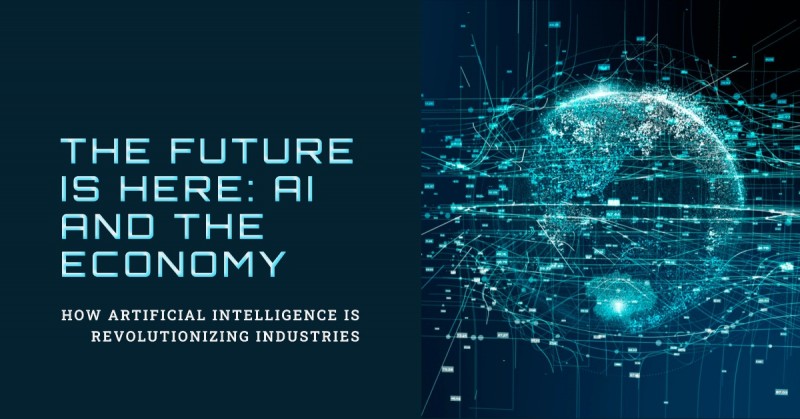
In today's rapidly evolving technological landscape, artificial intelligence (AI) has emerged as a groundbreaking force that is reshaping various industries and transforming the global economy. AI's ability to automate tasks, enhance efficiency, and introduce innovative products and services has created a paradigm shift in how businesses operate. While the full impact of AI on the economy is still a subject of ongoing debate, its potential for disruption and growth in the coming years is undeniable.
Introduction to Artificial Intelligence
Artificial Intelligence refers to the simulation of human intelligence in machines, enabling them to learn, reason, and make decisions independently. This field of computer science encompasses a wide range of techniques and approaches, including machine learning, natural language processing, computer vision, and robotics. AI systems can process vast amounts of data, detect patterns, and generate insights that drive informed decision-making.
The Growing Influence of AI in Industries
1. Automation and Efficiency
AI technology has revolutionized automation by streamlining and optimizing various tasks and processes. Intelligent machines and algorithms can perform repetitive or complex tasks with remarkable precision and speed, reducing human error and enhancing productivity. Industries such as manufacturing, logistics, and customer service have experienced significant improvements in operational efficiency through the integration of AI-powered systems.
2. Enhancing Customer Experience
AI-driven chatbots and virtual assistants have become ubiquitous in customer support. These intelligent systems can understand and respond to customer inquiries, provide personalized recommendations, and offer seamless user experiences. By leveraging AI, businesses can deliver round-the-clock support, quick problem resolution, and tailored solutions, leading to higher customer satisfaction and retention rates.
3. Data Analysis and Decision Making
The ability of AI to analyze massive datasets and extract valuable insights has empowered organizations across sectors. AI algorithms can identify patterns, correlations, and trends within data, enabling businesses to make data-driven decisions, optimize operations, and gain a competitive edge. From finance and healthcare to marketing and cybersecurity, AI has become an indispensable tool for harnessing the power of data.
4. Innovative Product Development
AI has spurred the creation of groundbreaking products and services that were once unimaginable. Self-driving cars, voice-activated assistants, smart home devices, and personalized recommendations are just a few examples of AI-powered innovations that have disrupted traditional industries. By leveraging AI technology, businesses can unlock new revenue streams, meet evolving customer demands, and stay ahead in a dynamic market landscape.
The Impact of AI on the Economy
The integration of AI into the economy has far-reaching implications, both positive and negative. While some experts predict substantial job displacement due to automation, others foresee the creation of new jobs that cater to AI development, implementation, and maintenance. The adoption of AI technology is likely to reshape existing job roles, requiring a shift in skill sets and the development of new competencies.
Furthermore, AI has the potential to boost productivity, stimulate economic growth, and unlock new opportunities for innovation. By automating repetitive tasks, AI frees up human capital for more strategic and creative endeavors. This shift can lead to the development of new industries, the emergence of entrepreneurial ventures, and increased efficiency across sectors.
However, concerns surrounding AI's impact on employment and income inequality cannot be ignored. As automation progresses, certain job roles may become obsolete, leading to job displacement and a widening skills gap. To mitigate these challenges, policymakers, businesses, and educational institutions must collaborate to reskill and upskill the workforce, ensuring a smooth transition into the AI-driven economy.
Conclusion
Artificial Intelligence is ushering in a new era of technological advancement, revolutionizing industries and reshaping the global economy. Its ability to automate tasks, improve efficiency, and foster innovation has created unprecedented opportunities and challenges. As businesses embrace AI technology, they must navigate the ethical, social, and economic implications to ensure a sustainable and inclusive future. The transformative power of AI is poised to redefine the way we work, live, and interact with technology, making it essential for individuals and organizations to adapt and harness its potential.
Top Cryptocurrency, Bitcoin, Ethereum Price today, June 21
SBI's Swaminathan Janakiraman is appointed RBI Dy Governor for 3-yrs
Russian Firms Shatter Records: Revenues Skyrocket to Eight Times the Nation's GDP